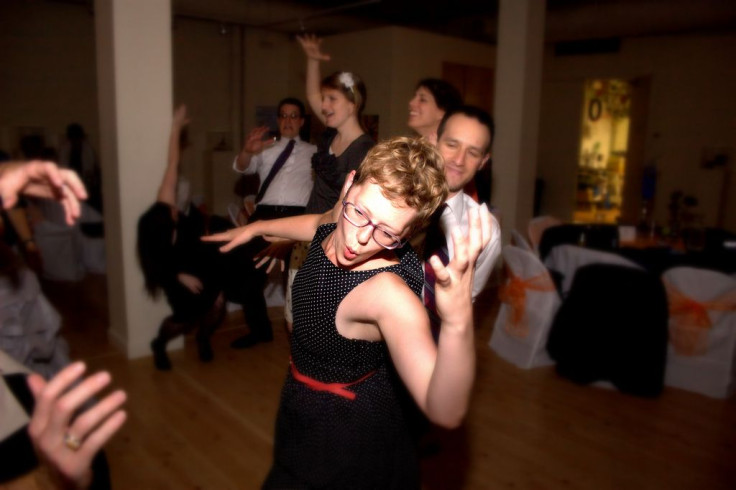Dancing With Rhythm Impossible For Beat-Deaf Individuals, Whose Brains Aren't Wired For Adapting

It’s been a running joke for years — white people can’t dance. From waving arms in vertical snakes to pointing to the stars and taking the Fresh Prince’s The Carlton seriously. The most common offense when it comes to their bad dancing, however, is their unknowing tendency to always be off-beat. Perhaps comedian Dwayne Perkins said it right: “You’re not married to the beat. … You’re not going to let the beat tell you what to do! That’s freedom. It doesn’t matter what song’s playing, you can do any dance. I don’t have that luxury. I got to do what the song tells me…”
In all fairness, white people aren’t the only ones who have a hard time moving to the beat, whether it’s dancing, walking in sync with music, or simply tapping our fingers. People of any race can be especially bad at it. But what makes something that should be common nature (finding rhythm) harder for certain people? Researchers from McGill University and the University of Montreal sought to find out. “We examined beat tracking, the ability to find a regular pulse and move with it, in individuals who complained of difficulty following a beat in everyday activities like listening to music and dancing,” said Caroline Palmer, a psychology professor at McGill, in a press release.
True beat-deafness, as the researchers call it, is actually pretty rare. After all, it’s one thing to try to move to the beat of a song, in which there are multiple components coming together, and another thing to hear a simple metronome tapping. People with beat-deafness aren’t even able to tap their fingers to the changing beat of a metronome, let alone determine which instrument in a song to move to. The researchers discovered this after performing a metronome test on two beat-deaf individuals, named Mathieu and Marjorie, and 26 healthy participants.
For the test, each participant was asked to tap their fingers along with a metronome as it changed its pace. They found that beat-deafness comes from some sort of difference in biological rhythms, and the ability to adapt to changing patterns. Both Mathieu and Marjorie showed deficits in relaxation time, “the time needed for tapping to return to synchrony” after the metronome changes pace. Only Marjorie, however, showed deficits in neural oscillations, the brain activity that is produced in response to stimuli, which are “thought to form the foundation of internal timekeeping mechanisms,” the researchers wrote in their study.
To put it simply, people with beat-deafness have brains with a spectrum of coordination difficulties. Thus, it becomes difficult to adapt to stimuli quickly or even maintain brain activity in a consistent pattern. And whereas people who aren’t clinically beat-deaf may be able to get musical training, those who are don’t benefit. At least, that was the case for Mathieu, who had three years of vocal training and one year of guitar training.
Though both Marjorie and Mathieu may have come to terms with their lack of dancing skill, the deficits associated with beat-deafness may apply to other aspects of life, and the researchers plan on seeing what they are. “How these individuals adapt to other temporally unpredictable events, including conversational speech and joint action tasks, is a question of further study.”
Source: Palmer C, Lidji P, Peretz I. Losing the beat: deficits in temporal coordination. Philosophical Transactions of the Royal Society B. 2014.



























